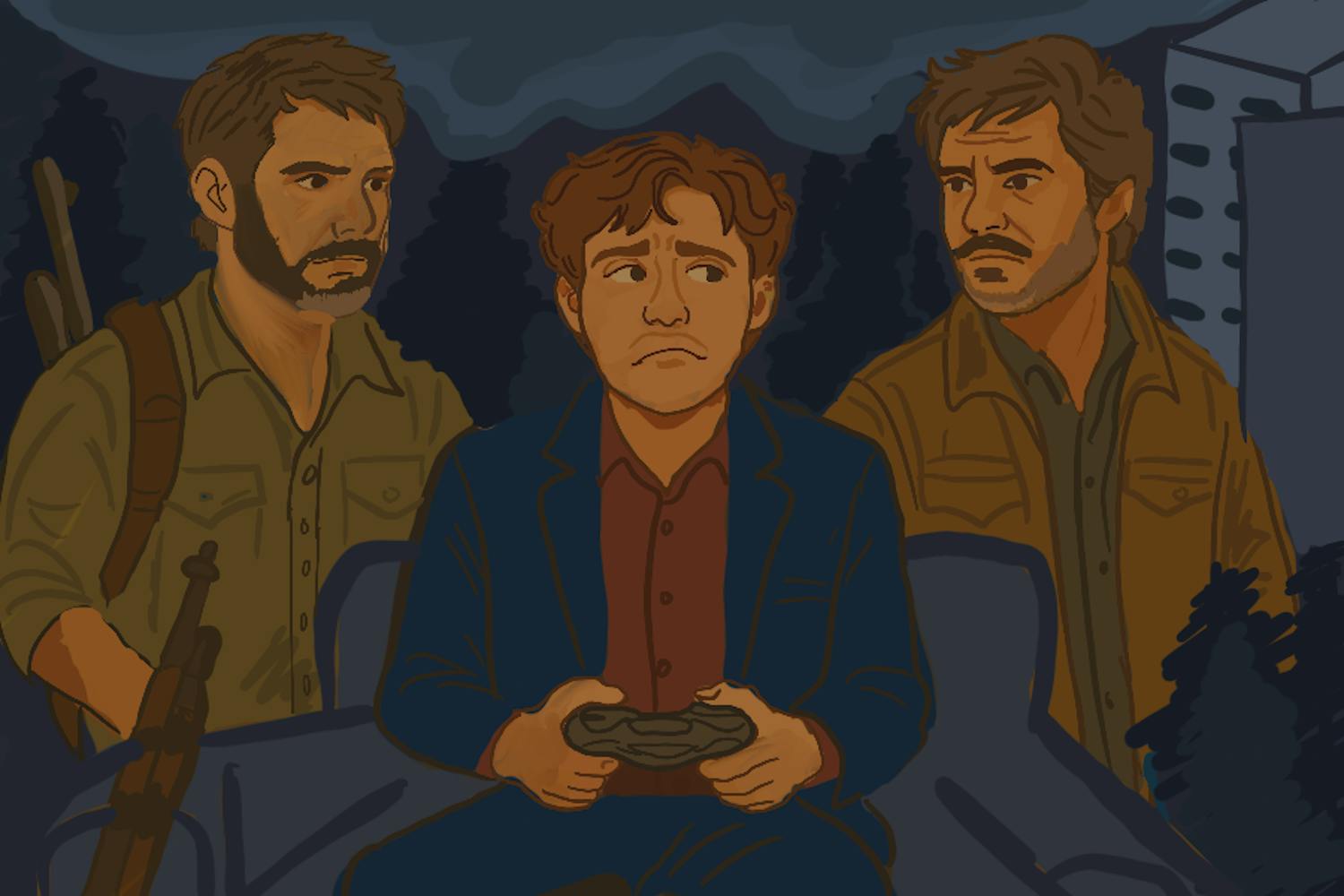Lars von Trier is a filmmaker that is known for subverting narrative expectations, shocking his audiences and pissing people off. So when news began circulating about his two-part film series “Nymphomaniac,” a character study plumbing the depths of female sexual addiction, people were understandably excited and apprehensive.
I have always believed that you can enjoy complex, controversial and problematic media as long as you are consciously aware of the problems it presents. Problems abound in “Nymphomaniac,” and few if any of them are even remotely enjoyable.
So far, reviews of the film have simultaneously celebrated von Trier’s lewd, artistic genius and scorned him for the film’s laughably tedious dialogue.
And laughably tedious it is. From the opening chords of von Trier’s four-hour opus, it becomes clear to the audience that what’s to follow will be an unbridled assault on the senses.
The main framing device of the film involves our protagonist Joe (played by Charlotte Gainsbourg) as she recounts the story of her life to Seligman (Stellan Skarsgård), a kind, disaffected man with a wealth of knowledge and odd trivia about seemingly every facet of history, who constantly interrupts her story to add commentary and embellishment.
It is the dialogue during these interactions between Seligman and Joe that almost single-handedly cripples the film.
“Perhaps the difference between me and other people is that I’ve always demanded more from the sunset,” opines Joe of her mistakes in life. Really? Who has ever said something this inane out loud?
I can assume these exchanges are meant to be poetic. In fact, the entire film is interwoven with metaphor upon metaphor in order to add depth and elevate Joe’s sexual experiences in the mind of the viewer.
However, this does nothing more than weigh down the film with incessant breaks that rob it of its pacing and frankly, bores the viewer. Joe has already spent the entire first half of the film coolly condemning her own life and decisions, these interactions with Seligman seem like an unnecessary simplification of her tale of woe.
Our protagonist is a woman who remembers the sexual partners in her life with a sincere shame, but who outwardly shows little to no expression, either during or after her many sexual encounters.
This view of sex is neither refreshing nor controversial; instead, it serves only to reveal von Trier’s own male fantasies regarding Joe’s sexuality and snatches any sexual agency regarding her decisions away from her.
Indeed, the first volume of the film seems to exist only to perpetuate Von Trier’s own warped view that there exist young women who prowl through train cars with the intent of seducing devoted, married men and single bachelors alike. Whatever point he's trying to make with this scene, it's most certainly not a point that serves women in any way. Von Trier attempts to patronizingly give back some ownership to his female characters by masking these issues with feminist rhetoric in the form of Seligman.
“You fought back against a gender that had been oppressing and mutilating and killing you and billions of women,” Seligman says as he tries to comfort Joe about her decisions.
Once again, this is a strange way to simplify the issue that Joe presents to him. The problem with Seligman, and in turn, von Trier, is that he adorns these sexual fantasies with endless pseudo-intellectual drivel. He attempts to justify and forgive Joe’s actions by making allusions to everything from Roman history to proper cake-eating etiquette.
But Seligman and von Trier can both take their comfort and put it in a movie that cares. If von Trier really wanted to validate Joe’s self-worth as a woman, he wouldn’t have created this patronizing stand-in for himself to try and absolve her of the terrible things she’s wrought to get to this point in the story.
But all of this is mostly light-hearted fare. It’s not until the second volume of the two-part series that we reach the film's most disturbing scenes. If "Volume 1" was about the introduction of this fantasy and detached emotions toward sex, then "Volume 2" is about the consequences that follow. Von Trier takes so much perverted pleasure in depicting the sadomasochistic scenes of this second half. It is the only part of the film that feels truly pornographic.
Von Trier directs these scenes with a meticulous fervor not present in any of the first-half’s sexual encounters. At one point, a partner of Joe’s succinctly informs her; “I’d like you to have your hair up, just in case it becomes necessary for me to hit you in the face.”
If you can get through these scenes without laughing or weeping from embarrassment or disgust, I applaud you.
By doing this, Von Trier makes a voyeur out of all of us who were forced to suffer through his inane plot. What was billed as a libidinous and provocative film becomes a criminally dull kinetic exercise of little consequence.
For all its intent to shock the viewer visually, the film never connects beyond that and its briefly pleasant moments will be forgotten by this time next year.
I wasn't looking for an accurate depiction of real life from this movie. I wasn’t expecting a happy ending or true love for Joe at the film’s conclusion. I expected emotional resonance and something other than Von Trier passing off his own twisted perception of female sexuality as art.
I think there was an opportunity here to explore the now-tired subject of female sexual compulsion and turn it on its head, but Von Trier was the wrong man for the job.
Reach the columnist at llonghi@asu.edu or follow her on Twitter @lolonghi



